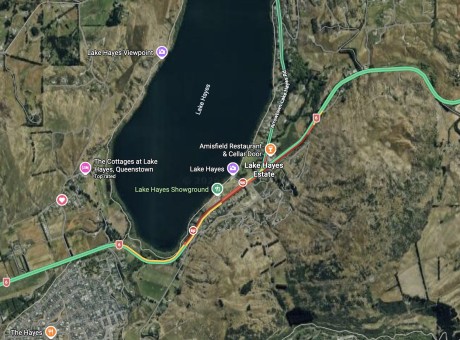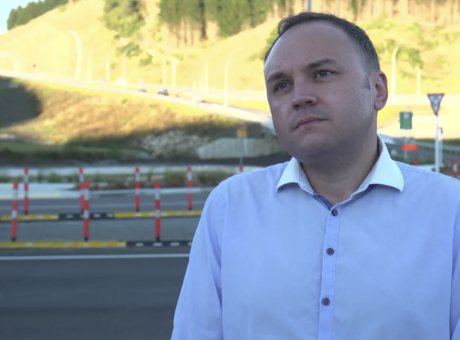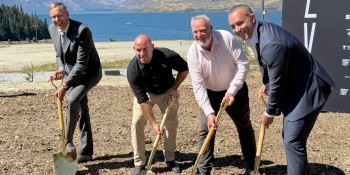Confusion, deception then panic - documents reveal QLDC financial mismanagement
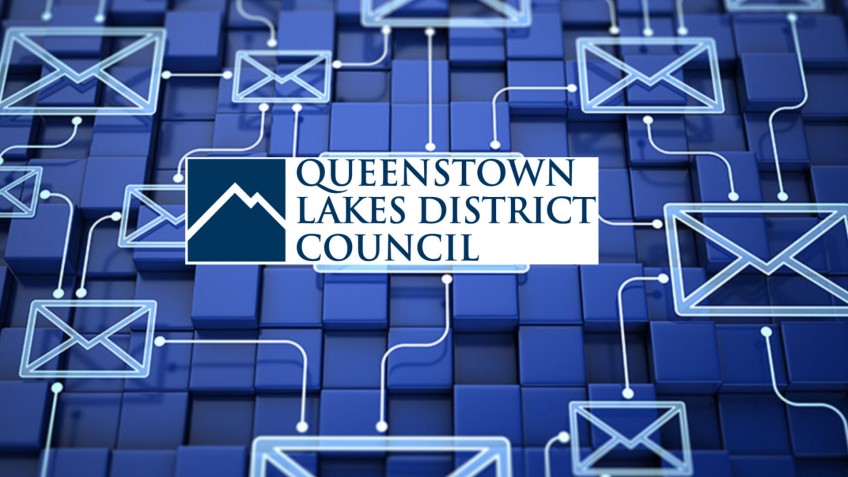
Analysis.
This article summarises a five-year Crux investigation, and hundreds of official information documents. The aim of the investigation was to understand how the Queenstown Lakes District Council spends money, if they stick to the rules and, if not, who approves non-compliant spending. Our conclusions, and suggested solutions can be found here, but here’s what we’ve discovered. It’s a detailed, long timeline, but we think it’s worth the effort for readers to follow these events as they unfolded and make up their own minds on what these details mean. The transactions affected total around $25 million.
On February 24, 2021, Queenstown Lakes District councillor Niamh Shaw sent this message to council chief executive Mike Theelen. It was less than 24 hours before an extraordinary meeting of elected members to fix a five-year finance rule that, if followed, would bring the council’s day to day operations to a complete halt.
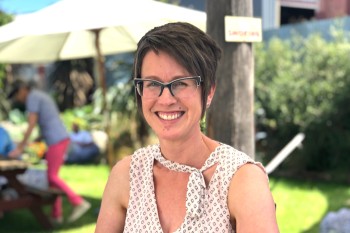
Councillor Niamh Shaw - '...or an uncomfortable combination of all the above'.
“Generally, our messaging and response to this has been really conflicting. To date, we’ve gone with: the Policy/Guidelines are ambiguous; they are not fit for purpose; staff need training how to apply 3- and 6-page documents respectively; we have not breached our Procurement Policy; we have breached our Policy but it’s not that serious (as supported by the fact that we will call an Extraordinary Meeting to change our Policy/Guidelines, but not to review our procurement practices generally); or an uncomfortable combination of all the above.”
Councillor Shaw was documenting in a couple of sentences a financial meltdown that has taken Crux five years to fully uncover.
Responding to Councillor Shaw’s email, the QLDC’s chief financial officer Stewart Burns, a veteran of more than 20 years, sent a reply of just a few words to council chief executive Mike Theelen: “Suspicious Minds – just like the Elvis song”.
More than 200 recently released official information documents tell us virtually the whole story of how our local council is run and how it spends money. The QLDC was pressured into releasing these documents on February 9, 2024 after an extensive investigation by Chief Ombudsman Peter Boshier and by Crux.
The documents suggest that not only are the council’s financial management systems extremely unstable but that the council’s management team will go to extraordinary lengths to hide these problems from both the media and ratepayers.
Our article includes links to many of the newly released documents and provides a timeline of how the QLDC created a financial meltdown and then instead of fixing it, attacked and discredited anybody who asked questions about it. There has still not been an apology, a single resignation or even an admission that these events took place.
2016: The new rules are adopted
Under direction from central government and the auditor general the QLDC adopted a new policy and guidelines to control how ratepayer money is spent. These are called procurement rules and according to the council the aim of the new rules was to deliver these four key values:
- Quality and value for money
- Transparency and fairness
- Accountability and integrity
- Sustainability
One of the main aims of the new procurement rules was to make sure council managers did not offer 'jobs for mates', especially to former council managers who resigned only to come back a few weeks later on substantial consultancy contracts worth hundreds of thousands of dollars each year. The rules also were designed to make sure money went to local companies and that in each case it was more cost effective to use external suppliers than the council’s own staff.
The new rules were only a few pages long and took perhaps ten minutes or less to read.
But the rules contained one potentially catastrophic mistake that, if followed, would bring the council’s day to day operations to a complete halt. At first, for three years, nobody spotted that mistake which is, in itself, remarkable.
Mr Theelen was employed as the chief executive of the council in February 2016.
2017: did anybody read the rules?
The 2016 procurement rules were supposed to be reviewed annually but that never happened.
It appears the new rules were simply ignored.
However in June 2017 a memo was issued to all council managers from the council’s HR department and approved by Mr Theelen. The memo was designed to give council managers “a clear framework” for how to hire external consultants and suppliers. It was a reminder to follow the 2016 procurement rules.
2018: The council’s first procurement manager arrives
In September 2018 the QLDC hired its very first procurement manager. His name is Geoff Mayman and he was an experienced procurement manager from the Christchurch City Council.
Earlier that year a senior manager had just hired two former council managers who were working for a newly formed company – ZQN7 Ltd. That manager, Myles Lind, did not follow any of the 2016 procurement rules and the contracts were eventually to total more than $600,000 for less than two years part time consultancy work. It was just one of many contracts given to external consultants.
Within just a few months of getting his feet under the desk, QLDC’s new procurement manager contacted the chief executive and the rest of the executive leadership team (ELT) with some serious news. His main points in a May 16, 2019 presentation were:
- The 2016 guidelines were “inoperable” if followed. They required three quotes for anything costing a single dollar or more and that included payroll, tax, payments to government departments, insurance and many other “routine” payments.
- There were around 300 transactions a month in the sub-$50,000 category worth up to 10 percent of the council’s entire annual budget. Above $50,000 the rules required a bid process or a procurement plan that made a business case for using outside suppliers and people. But below $50,000 the rules still required three quotes.
- The guidelines were no longer fit for purpose and needed a refresh.
- There was no “single source of truth” contracts register meaning official information (LGOIMA) requests could not be properly answered.
- Purchase orders were being used without using the QLDC’s own terms and conditions. This meant the council had to comply with the terms and conditions of the external supplier, not their own.
- Payment thresholds were not clear or consistent.
In spite of the impact and clarity of Mr Mayman’s presentation his points were effectively ignored by Mr Theelen and the rest of the ELT including chief financial officer Stewart Burns. As far as we can tell, none of Mr Mayman’s 2019 main concerns were acted on or fixed.
Mr Mayman was instead asked to work on other projects, in particular Project Manawa (the new controversial HQ for the council in the Queenstown CBD) and stage one of the arterial (bypass) road that currently is running close to $100 million over budget for 670 metres of unfinished road that links up with Project Manawa and eventually, subject to funding, to another controversial QLDC project – Lakeview. Lakeview is around $80 million over budget.
What Mr Mayman appeared not to know at this stage was that many council managers, including Mr Lind, were hiring consultants and contractors on the basis that a spend of under $50,000 effectively needed no paperwork. Mr Lind and his successors (he left in 2018) split the $600,000 paid to ZQN7 Ltd into 13 separate “budgets” which in their (mistaken) view meant “no paperwork”.
In fact, this $50,000 “no paperwork” exemption never existed.
2020: Enter Crux and the ZQN7 investigation
Since 2018 Crux had been interested in what appeared to be the very high levels of ratepayer money being spent on external consultants. Many of these consultants were former council managers. It was difficult getting this information from council communications staff but gradually part of the picture became clearer.
It was big business.
What we could not discover was whether these consultants were hired using a competitive, value for money bid process (as per the 2016 rules) or whether a “jobs for mates” scheme was in operation.
In the end the process of discovery was so hard that we decided to select one consultancy company at random and try to dig deep on how they were hired. We selected ZQN7 Ltd simply because it was the last entry on an alphabetical council list of suppliers.
What we discovered has already been widely published.
ZQN7 Ltd was owned by Mrs Ruth Stokes, a former QLDC senior council manager. The sole employee of the company was Jendi Paterson, a long term friend of Mrs Stokes and also a former QLDC staff member. Ms Paterson was also a close family friend of then mayor Jim Boult and had been nanny to Mr Boult’s daughter.
Their “registered address” was an empty paddock in Arrowtown. The company had no other clients, no website and was formed just days before Mrs Stokes and Mr Lind discussed work with QLDC.
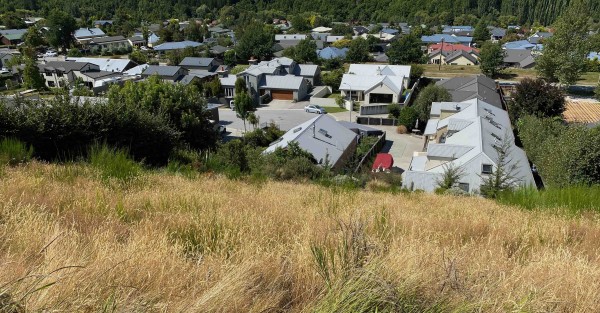
The registered office of ZQN7 Ltd in 2018 - an empty paddock in Arrowtown. Later it was to be the site of a large house occupied and owned by both Ruth Stokes and Jendi Paterson.
That first meeting was on May 13, 2018. Just two days later, on May 15, 2018, Mr Lind had issued the first two, possibly three, QLDC contracts to ZQN7 Ltd. There was no competitive bid process, no procurement plan – nothing. Here's just one of the contracts, redacted by QLDC with no project budget just an hourly rate that Crux understands was $135 per hour.
The only process discovered by Crux was Mr Lind telling Mr Theelen about the deal when they had met in the street back in 2018 and a similar informal OK from the then chair of the council’s infrastructure committee Alexa Forbes.
Further contracts for ZQN7 Ltd continued to roll in using the imaginary $50,000 “no paperwork” rule. In most cases the $50,000 budget estimate was dramatically exceeded. In the end more than $200,000 of $600,000 money paid to ZQN7 was over the initial agreed $50,000 budget “slices”. The 2016 rules made it clear that only a “total project” fee could be used in deciding the procurement process, and splitting a big value contract into lots of smaller packages was specifically forbidden.
All of this took months for Crux to uncover, using official information requests that were heavily redacted. Much of the information was withheld as it “did not exist”, was “confidential” or “private”, or encroached on the ability of council staff to have “free and frank” internal discussions without the risk of media attention.
The chief ombudsman subsequently ruled in late 2023 that many of these reasons did not in fact apply to the information Crux was requesting. The ombudsman also discovered that the QLDC had not searched for some of the documents requested, had used limited search criteria and had not searched the body of official emails, only the subject line using very limited definitions.
2020: Things get very strange – and serious
By this stage it was clear, even from Mr Mayman’s own 2019 presentation to the ELT, that the 2016 spending rules were totally inoperable. But even the parts of the 2016 rules that did work were being ignored, or as the QLDC comms team liked to say, “misunderstood”.

Geoff Mayman, the QLDC's procurement manager, warned the council chief executive in 2019 that the procurement rules were 'inoperable' due to a number of issues including three quotes being needed for all expenditure over $1 - the fatal flaw.
The rules had never been through the required annual review and Mr Mayman’s dire 2019 warnings had been ignored.
The 2017 memo proved that the chief executive and managers knew the rules were supposed to be followed and that the principles of procurement were of great importance to both central government and the Office of Auditor General.
So when Crux asked in the first part of 2020 why the rules had been broken in the case of ZQN7 Ltd, the answer from the chief executive and the council communications team was surprising. They said the rules had not been broken and Crux reporting was “inaccurate”.
For almost a year these denials continued, with Crux asking on a regular basis why and how the rules had been broken, and the council taking an ever-tougher line that the rules had been followed and never broken. Of course, we knew that was impossible because anyone who took ten minutes to read the rules could see the fatal flaw.
At one stage, in what appeared to be a PR tactic, the council admitted to a $2,000 error in one of the contracts that was used to hire ZQN7 Ltd.
QLDC staff spent many hours and days denying that the rules had been broken, even filing complaints with the NZ Media Council, consulting lawyers, and attempting to discredit Crux reporting. One internal email on the subject of Crux procurement questions starts with “face plant”.
Even Mr Mayman appeared by this stage to have been persuaded to ignore the “inoperable” 2016 spending rules and abandon any attempt to fix them. He was asked by one department manager, Tim Dawson, in November 2020 for advice on hiring external consultants. This was his reply, and he simply asks the manager what’s "BAU" (business as usual) – quite a change from his 2019 'there’s a lot that must be fixed urgently' presentation. It's as if Mr Mayman has been told to abandon his attempts to enforce the council's official spending rules. He virtually says "do what you like."
In the documents just released, following the investigation by the chief ombudsman, the council’s communications manager Naell Crosby-Roe makes an unusual admission to Mr Theelen on November 16, 2020.
“He (Peter Newport – Crux) is obviously seeing backhanders and conspiracy here and our current response strategy isn’t working. Happy to discuss.”
The email is sent to not only the chief executive, but also Meaghan Miller, who is a 22-year QLDC veteran and former journalist. Her job title is corporate services manager, but she’s also responsible for governance/official information and communications. In effect she’s second-in-charge to Mr Theelen, at least in terms of influence.
Mrs Miller tells Naell Crosby-Roe to carry on with the existing plan of denial, to keep saying that the council has not broken the rules. We’ve always known that this statement is impossible given the “fatal flaw” that Mr Mayman told the entire ELT about in his 2019 presentation. We also knew that the $50,000 “no paper work” assumption was a complete myth.
2020 finished with one final statement to Crux from Mr Theelen:
“QLDC has previously confirmed the details of the procurement process through numerous responses and information provided to Crux. I can also again reconfirm that no QLDC officer has knowingly or intentionally breached the procurement policy.
“As also previously stated, QLDC is confident that its management of the ZQN7 procurement process was conducted within the policy and guidelines excepting the $2,000 error.”
2021 - Enter the Taxpayers Union and the auditor general
One of the most difficult situations for any journalist is if we publish what we consider to be a “blockbuster” series of stories and then it gets ignored.
We were on our own. At least until the Taxpayers Union spotted our coverage and got involved.
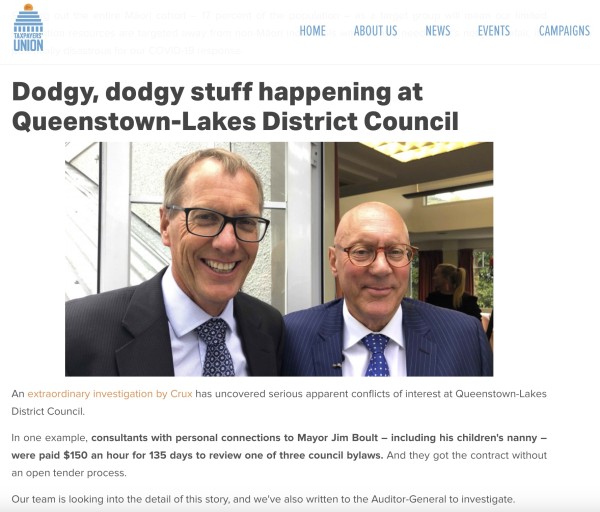
The Taxpayers' Union made contact with the auditor general’s office when they read our coverage.
The decision by the Taxpayers Union to contact the office of the auditor general about the spending scandal produced some dramatic changes in the behaviour of the QLDC managers trying to contain Crux coverage.
We know it sounds on the very edge of what’s credible but there is actually ample evidence that neither Mr Theelen, nor any of the top management team, nor any of the extensive communications team, had taken the time to actually read the 2016 procurement rules - all ten pages of them.
But Mr Mayman had read the rules and told everybody at QLDC in 2019 that they were “inoperable”.
Crux also published in mid-January 2021 an extensive summary of the entire situation – a summary that was read by many of QLDC’s elected councillors, and more than 20,000 Crux readers.
The big news that we broke in this article was that after being hired by Mr Lind for the $600,000 QLDC part time contract the two members of the ZQN7 team, Mrs Stokes and Ms Paterson embarked on an extraordinary journey of earning similar amounts from other local councils, in the North Island, at the same time.
These other projects involved running Hamilton’s parks department and building a new stadium in New Plymouth – all at the same time as the QLDC work. Unless ZQN7 Ltd had found a way to be magically in three places at the same time the projects, and the fees, seemed extraordinary.
It’s important to stress that when Crux approached not just the QLDC, but the Hamilton and New Plymouth councils about these multiple overlapping projects (all avoiding a full procurement process) they all basically had the same answer: 'No problem – it’s all been declared, this is the way council consultants work'.
The QLDC Audit, Finance and Risk Committee
The council senior management team went into an extraordinary siege mode after the 2020 to 2021 Christmas and New Year break.
The involvement of the auditor general changed everything, but true to form the chief executive and communications team focussed on denial, attack and distraction.
“It’s not an investigation,” became the motto.
Then mayor Jim Boult told Crux that our claims were “unsubstantiated” and that there was no need for an external enquiry.
The mayor also made the unusual decision to ask Mr Theelen to lead an internal investigation into...Mr Theelen.
Also at this point there was an exchange of emails between Mr Theelen and the chair of the council’s Audit, Finance and Risk Committee (AFR), John MacDonald.
As committee chair, Mr MacDonald knew that questions would get asked as to why near universal non-compliance with QLDC’s finance rules had been allowed to continue for five years between 2016 and 2021 – and was still continuing right up until this point.
While the council was still telling Crux that there was no problem and the rules were followed, councillors started asking questions after the Crux January 2021 investigation was published.
In the newly released batch of documents we see Mr MacDonald contacting Mr Theelen on January 18, 2021 expressing his concerns. Mr MacDonald tells Mr Theelen:
“I think we should be putting this on the agenda for the next Audit, Finance and Risk Committee.”
Less than two hours later Mr Theelen replies.
“Thanks Jim (Boult) and I have spoken about this and we have been in dialogue with Crux for some months on this and he has of course previously published pieces trying to claim all sorts of conspiracies.
“Jim and I have agreed that we will put together a review and summary to all councillors, and perhaps at that time we can decide whether the matter needs to go to AFR.”
In effect this is the mayor and chief executive of the QLDC telling the chair of the council’s Audit, Finance and Risk committee to hold off looking at the procurement issue until they make the decision to do so.
We can fast forward through the next few weeks as Mr Theelen asks a council insider and former QLDC consultant Stephen Batstone to undertake the “review” of the council’s financial spending rules. It’s not an investigation.
We’ll never know what Mr Boult and Mr Theelen expected from Mr Batstone but he ended up confirming everything that Crux had been claiming for the past year about ZQN7 Ltd – the rules were not being followed, total budgets were split into smaller packages, proper records were not kept, processes were not transparent. Everything in fact that was addressed in 2016 when the rules were adopted.
But Dr Batstone peppered his report with constant references to “nobody did anything bad on purpose” and attempted to soften the blow of the non-compliance by constant reference to “if taken literally” or “a strict interpretation” - somehow implying that the rules were OK if not followed “literally” or “strictly”.
Dr Batstone and others then started repeating the phrase that “no illegal practice occurred”, but no external legal reference or evidence was offered to support that view. It was the start of a new QLDC PR strategy: 'Yes, some terrible things happened by accident but we are sorry and nobody did anything wrong on purpose. There’s always room for us to do things better'.
Mr Theelen then emailed mayor Mr Boult, finally agreeing that the procurement rules had been broken for years and it went way beyond ZQN7. He said to the mayor that this discovery was “intensely disappointing”.
Most significantly at this stage Mr Theelen declared to the mayor that the issue “went beyond ZQN7”. Council staff then “discovered” that the non-compliance was so universal that the council’s day to day operations could not continue and an extraordinary meeting of elected members was called to change the procurement rules. The official council communications line continued along the lines of 'nothing to see here' and 'nobody did anything wrong'.
Councillors, including Ms Shaw, were alarmed and confused as to why the 'non-issue' of Crux questions over non-compliant procurement spending had suddenly escalated to an extraordinary meeting (not an emergency meeting as Crux was told by the communications team). The meeting itself ended up having an almost jolly 'isn’t this fun' atmosphere as Mr Theelen and his team presented the urgent rule fix as something of an unusual technical glitch.
Mr Theelen then went into overdrive issuing batch after batch of emails that demanded everybody within QLDC (now) follow the procurement rules. Managers had to acknowledge receipt of these emails and then brief their staff. It was a blitz with a strong flavour of panic. Here’s just one example:

In February 2021 CEO Mike Theelen started emailing all council managers telling them to follow procurement guidelines, something the council had told Crux had been happening since 2016.
When Crux kept asking why we’d been lied to for a year when asking about procurement compliance those questions were brushed aside by the QLDC communications team and chief executive with the same approach as most people would take to swatting a fly or kicking a bit of dirt off the footpath. No such lying had occurred said the communications team and Mr Theelen.
One or two counsellors suggested in a council meeting that Crux should be thanked for the work we had done. The response was a frosty shaking of heads, negative coughing and grumpy glancing out of the window or at the ceiling. There was no appetite to thank Crux and there was a strange feeling that the battle was only just starting.
The matter was referred to the Audit, Finance and Risk Committee but pretty much fizzled out there with the committee members taking the view that the Batstone report had identified the problem and the solution was just as obvious as it was in 2016, everyone, sort of, was supposed to do the right thing (whatever that was).
The office of the auditor general
The 'not an investigation' by the office of the auditor general went even further than the Batstone report in finding that QLDC had broken literally every rule in the book when it came to finances and ZQN7 Ltd.
In the 'it would be funny if not so tragic' file is a media release from the QLDC on the same day saying that no investigation by the auditor general had taken place.
Here’s a summary of the auditor general’s findings in May 2021.
- No documentation to support ZQN7’s invoices being split into small amounts (less than $50,000) by the QLDC, having the effect of the total amount not being controlled by the procurement rules. The total ZQN7 spend by the QLDC was $528,144 plus GST
- In 11 out of 12 ZQN7 'split' contracts no approved procurement plan was produced – this is a specific requirement of the QLDC’s own policy and guidelines – otherwise the council needed to go through a tender process
- In most cases the 'sub-$50,000' ZQN7 contract splits resulted in the QLDC spending exceeding that $50,000 limit – in fact the overspend totalled $204,144
- No QLDC tracking of the total spend on ZQN7 Ltd – “This creates a risk that the council will pay more than it should, if it does not have an idea of what a good or service will cost”
- Financial system failures have resulted in bigger problems. “The council has exposed itself to questions being asked about the fairness of the selection of ZQN7 and the transparency that the council displayed in its procurement approach”
The auditor general then identified the next steps that needed to be taken:
"Both the council’s review and our assessment of what happened in this case identify improvements that can be made to strengthen procurement and subsequent contract management processes. These include:
- incorporating relevant aspects of the government procurement rules into the council’s policies
- ensuring that appropriate documentation is retained to support council decision-making processes
- developing guidance for determining appropriate estimates for new contracts
- updating policies and guidance to include guidance around contract management to ensure delivery of goods and services is well-managed
- developing procedures and guidance for staff in relation to charges and cost management
- confirming what management reporting will be required for each contract the council enters into
Remarkably the auditor general accepted QLDC's view that none of these breaches were done intentionally and the council's promise to fix the problems was considered a sufficient end to the matter, subject to some follow up checks.
2022 – 2024: Lakeview, Manawa and beyond
Having been left in no doubt that the QLDC did not welcome the Crux investigation into procurement we at least thought that the council’s culture and financial management practices would change.
Certainly the Crux relationship with the council communications team got worse. We’d been told a bunch of lies for over a year, how were we supposed to trust anything that came out of that office?
But things got worse and we started to realise that the confidence that QLDC managers, and council PR people, had in being 'bullet proof' or 'Teflon coated' came from an unexpected source outside the Queenstown Lakes District - other councils and Local Government New Zealand.
Local Government New Zealand sounds like a regulator of local government when in fact they are a lobby group for councils. It’s a closed loop with no real oversight of council behaviour apart from news media and elected members. We have to wonder how the council’s auditor failed to identify the 'fatal flaw' in the procurement rules or any evidence of non-compliance.
Crux has seen at close quarters how the elected members are persuaded to be 'good councillors' and not make a fuss or ask difficult questions. Many councillors are now wondering what their actual function is given their limited, or even non-existent, ability to control or change the behaviour of council senior managers.
And the more we spoke to other councils around New Zealand about their consultants, or 'our' consultants on their patch, the more we saw the same pattern of behaviour. Procurement rules were being ignored, official information requests were withheld for the same multiple (often false) reasons as the QLDC used, and communications staff were difficult when questioned.
The most common phrase used is that 'we don’t get trouble from any other journalists'.
Crux summarised this alamaring national situation in this article from 2022, where we revealed the involvement of former assistant auditor general, now a Queenstown based consultant, Bruce Robertson.
Mr Robertson also either chairs or sits on the following council’s Audit and Risk Committees.
- Gisborne
- Thames Coromandel
- Tauranga
- Auckland
- Environment Southland
- Ōtorohanga
- Waipa
- Bay of Plenty
- Wellington
- Far North District
- Waitomo
- Timaru
- Invercargill
Our story on this national network of consultants linked to council’s management and governance broke all audience records for Crux and still makes for very important reading.
But back at QLDC Mr Theelen seemed almost energised by what he may have seen as a victory over Crux during the procurement scandal. There were really no consequences.
In an intriguing development, the council procurement manager who did his job and spotted the non-compliance, the fatal flaw and the general poor practice when it came to how the QLDC spends public money appears to have been side-lined and even demoted.
QLDC still employs Mr Mayman but his job title has been changed from commercial and procurement manager to “owner interface manager”.
The council advertised for a new procurement manager in late 2023 but told Crux this week that the search has been unsuccessful, citing: “Procurement is considered a skill shortage nationally and hence is a challenging role to recruit for. Ultimately, the initial recruitment campaign was unsuccessful because no applicant met the requirements outlined in job description.”
The council communications team says it will re-advertise the role later this year.
In February 2023, the QLDC hired external consultants to come up with a new set of procurement rules and paid $361,000 for that work.
Mr Mayman knew how to do that work back in 2019 and it would have cost the ratepayers nothing on top of his existing salary.





